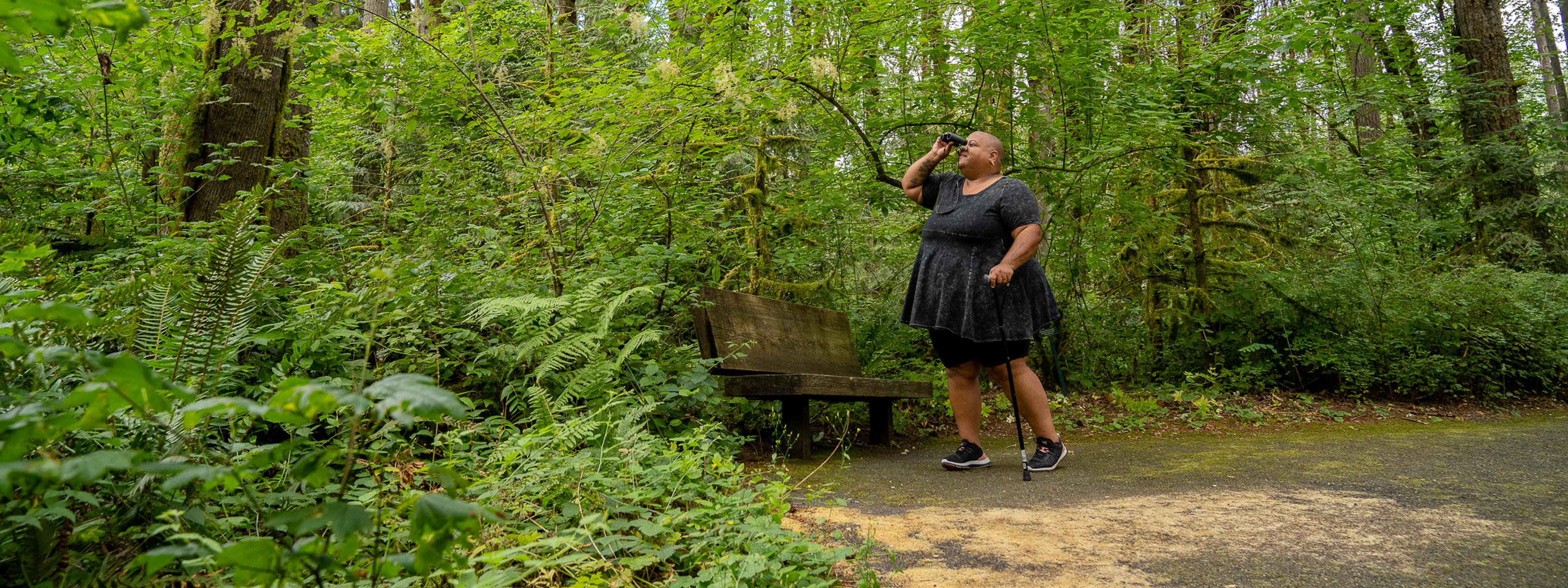Assistive technology organizations
Globally, many organizations contribute to expanding access to quality assistive technology.
This page highlights a selection of key organizations that:
- Fund or implement assistive technology programmes
- Serve as member organizations or professional associations, or
- Provide training resources for assistive technology globally
This is not an exhaustive list of all organizations involved in assistive technology.
| Name of Organization | Role (As per organization's own description) | Website Link |
|---|---|---|
| International Standards Organization (ISO) |
ISO is an independent, non-governmental international organization. It brings global experts together to agree on the best ways of doing things. From quality management to AI, our mission is to make lives easier, safer and better – for everyone, everywhere. ISO develops standards for assistive technology, with the primary standard being ISO 9999, which provides a classification and terminology for assistive products. The ISO also develops general requirements and test methods through standards like ISO 21856:2022. These standards aim to ensure products are safe, reliable, and functional, improving the quality of life for users and decreasing production costs for manufacturers. |
https://www.iso.org/home.html |
| International Telecommunication Union (ITU) |
As the United Nations specialized agency for digital technologies, ITU works towards harnessing innovation and connecting everyone to ensure a better future for all. ITU works to increase access to information and communication technologies (ICTs) for persons with disabilities: by raising awareness of their right to access telecommunications/ICTs; mainstreaming accessibility in the development of international telecommunications/ICT standards; and providing education and training on key accessibility issues. |
https://www.itu.int/ |
| Latter-day Saint Charities |
Latter-day Saint Charities, is the humanitarian arm of The Church of Jesus Christ of Latter-day Saints. Through volunteer service, collaborations with organizations, and donations, the Church provides worldwide aid and service to all of God’s children with the hope of building self-reliance. Latter-day Saint Charities provides wheelchairs to people in need. |
https://www.churchofjesuschrist.org/ |
| Light for the world |
Light for the World is an international disability and development NGO that works to create an inclusive society by |
https://www.light-for-the-world.org/ |
| Liliane Fonds |
The Liliane Fonds Foundation is an organisation that offers individual, tailor-made support to an increasing number of children with disabilities in the poorest countries of the world. The Liliane Fonds Foundation dreams of a world in which children and young people with a disability are equal and can participate in society to the best of their abilities. Together with local Partner Organisations in Africa, Asia, and Latin America, they make children’s living, playing, and learning environment more accessible. |
https://www.lilianefonds.org/ |
| Médecins Sans Frontières (MSF) |
Médecins Sans Frontières (MSF) is an international, independent medical humanitarian organisation, that provides medical assistance to people affected by conflict, epidemics, disasters, or exclusion from healthcare. |
https://www.msf.org/ |
| MiracleFeet |
MiracleFeet is a nonprofit organization dedicated to increasing access to proper treatment for children born with congenital talipes equino-varus (clubfoot) in low- and middle-income countries through partnerships with local healthcare providers. |
https://www.miraclefeet.org/ |
| Mobility India (MI) |
Mobility India is a South Asia-based institution leading in Prosthetics and Orthotics workforce development offering diploma, bachelor's, and master's programs as well as training in rehabilitation and wheelchair services. |
https://mobility-india.org/ |
| Momentum Wheels for Humanity |
Momentum Wheels for Humanity is a non-governmental organization working to promote greater inclusion for people with disabilities globally, through mobility, therapy, advocacy, and empowerment. |
https://momentum4humanity.org/ |
| Motivation |
Motivation is an international development charity and social enterprise with over thirty-years of experience in wheelchair design, provision and related services, supporting mobility and independence. |
https://motivation.org.uk/ |
Pagination
| Name of Organization | Role (As per organization's own description) | Website Link |
|---|---|---|
| World physiotherapy |
World Physiotherapy is the sole international voice for physiotherapy, representing more than 600,000 physiotherapists worldwide, through 129 member organizations. The organization operates as a non-profit organization and is committed to furthering the physiotherapy profession and improving global health by supporting member organizations with information, expertise, and services. |
https://world.physio/ |
Pagination
| Name of Organization | Role (As per organization's own description) | Website Link |
|---|---|---|
| International Society of Wheelchair Professionals (ISWP) |
The International Society of Wheelchair Professionals (ISWP) was established in 2015 to address the global need for appropriate wheelchairs and related services. With over 80 million people worldwide requiring wheelchairs for mobility and function, many still lack access to suitable equipment and support. |
https://iswp.org/ |
| Physiopedia |
Physiopedia is a charity registered in the United Kingdom that provides an evidence-based and continually updating knowledge resource that is free for anyone to access. The Physiopedia website is the world's largest rehabilitation knowledge resource and is used by people throughout the world. |
https://www.physio-pedia.com/ |
| WHO Academy |
The WHO Academy hosts Learning on TAP (TAP for short), a WHO blended learning resource consisting of modular courses on a range of health topics including assistive technology and sensory functions (eyes and ears). The primary target audiences for TAP are primary care and community-level personnel. The assistive technology course teaches identification, referral and provision of selected assistive products for cognition, communication, hearing, mobility, self-care and vision. It also has modules for emergency contexts. |
https://whoacademy.org/partners/TAP/ |

